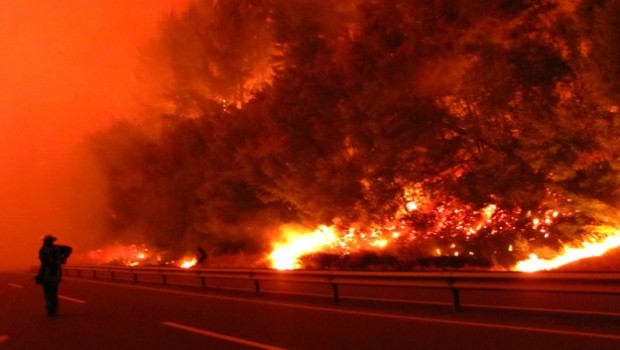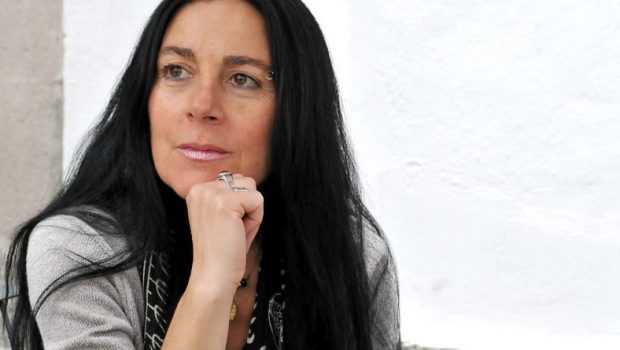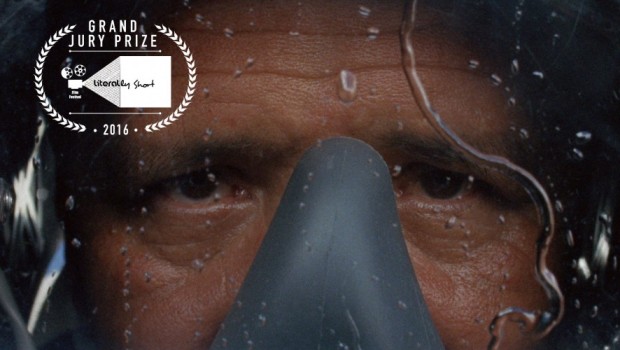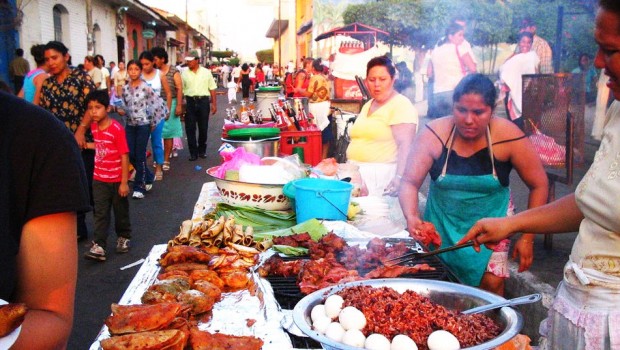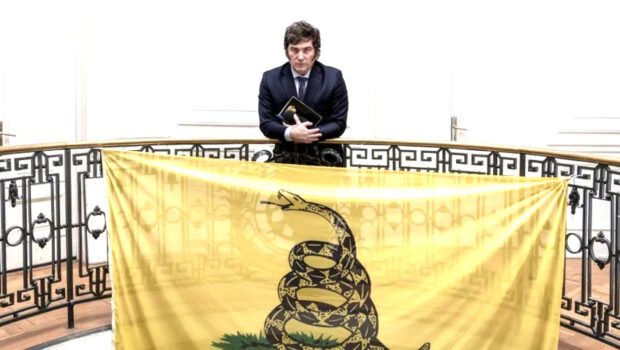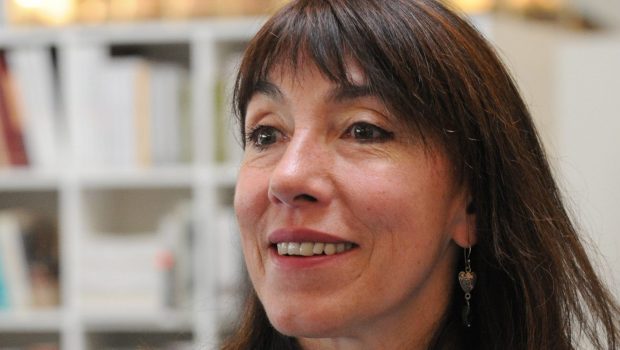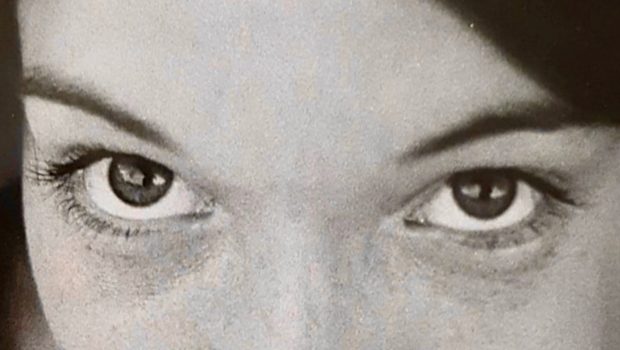Memories That Burned Me
La memoria en donde ardía
Socorro Venegas
Translated by Tanya Huntington.
For Daniel Drubach.
Is it possible that what we have forgotten wields a greater influence over us than what we are able to recall? I lifted my fingers to my lips. There it was, that same fire across the passage of time. The taste of gasoline made me press down gently on the brake pedal. I pulled over to the curb and turned off the engine. I gazed into the rearview mirror, where I could make out the fire-eater’s scorching blast from blocks away.
I walked back to the intersection, where the adolescent was still doing his thing. He stopped time. Or maybe it was time that stopped air, smoke, flame…
It looked like a pretty tricky business, and he gave it his all: the swig of gasoline, the mouth inches away from the torch, the blowing. No: the roaring. The instant flare.
It felt rehearsed but still, it was thrilling. I watched from afar, the glow of heat on my face.
He was just a kid. When I first saw him through the windshield, I hardly even registered his face. His rickety silhouette. With all the impatience of someone eager to go about her business without the spectacle of poverty rearing its ugly head, I offered him some change. It was then that our hands had grazed.
Now I examined him outright: he was beautiful, with aquiline features and slightly slanted eyes. I found his reddened mouth, his swollen lips disturbingly attractive.
What was it I had lost there, on that street corner?
My father ran out of gas one afternoon and had to improvise: he took a gallon jug, asked a taxi driver for some fuel and used a hose to suck the gasoline out of the taxi driver’s tank until, by the laws of physics, I guess, the gas flowed up through the hose and into the jug of its own accord.
Dad tossed the hose into the trunk and forgot about it, but I stole it later on. I liked to mimic him with my brothers and their toy cars. I was definitely not one of those girls who played with dolls. Everyone realized this the day I burned them all, spraying them with a little fuel I had extracted from the tank of our car.
Some other afternoon: Alan and I had to hitch a ride all the way across an island, from the Corsican wilderness to the port of Bastia. The cars roared past at full speed because of the fuel crisis, until one little red coupe drove off the road; the driver couldn’t speak a word of English and kept cursing in Russian or something. The smell of a gas leak sent all three of us running back onto the pavement, where we hitched another ride with a few bumps and bruises and life in all its infinite generosity on our side. How could I have known that a few months later, it would all be consumed by a single word? Aneurism. I would become a widow at the age of twenty-seven.
Not long before Corsica, another island: I visited every corner of Matanzas with Alexis, my longhaired lover. At the time, we possessed the eternal youth of the fire-eater. We were practically children. We took the gasoline he was hoarding for his old Studebaker and exchanged it for a bottle of rum. We drank it down to the last drop by the seaside at Varadero. Melancholy and drunk, we bid farewell to a romance that said nothing about either of us because, to be honest, we never had any faith in it.
One Sunday, when it was my turn to cover the night shift at the newspaper where I worked: they assigned me to cover an uprising in a small town; some police officers had been kidnapped, and people were threatening to burn them alive unless the government guaranteed to keep its word, which was worthless. By the time I got there, the ominous smell of burnt flesh already rose from the main square. Only one of the officers survived; he had embraced his executioner with all the terror and love for life he could muster.
They sometimes say that one comes undone through apologies or tears. I came undone through memories. The God of Time had given me other lives to live and I, why deny it, had spent them all. There was no aftertaste of gasoline in my heart.
It was like being mugged: those memories had been torn from me. Like when you remove an old ring that has been in the same spot for so long you don’t even know it’s there, until suddenly in its place there is a strip of whiter skin and the void, the absence, become evident. A fortuitous encounter with my own self as a lost object; that was what was happening to me. But it wasn’t just that. I was also eating fire.
The kid spotted me. From behind the black smoke, he managed a pained smile. He would ask drivers for money with one hand extended, his torch in the other. When the light turned green, he would run for the opposite curb. A barrage of cars passed between us. He rinsed his mouth out with gasoline, leaned toward me in a graceful bow then roared with renewed vigor. A tongue of flame rose up over the cars; gleefully, avidly it cut through the clear air, penetrating the pores of my memories. It had found me after such a long, long time.
 Socorro Venegas is the winner of the 2002 Premio Nacional de Poesía y Cuento “Benemérito de América.”In 2004, her first novel, Será negra y blanca, won the Premio Nacional de Novela Ópera Prima “Carlos Fuentes. Translations of her stories have appeared in Concho River Review, The Modern Review, Literal, and The Listening Eye, among other publications.
Socorro Venegas is the winner of the 2002 Premio Nacional de Poesía y Cuento “Benemérito de América.”In 2004, her first novel, Será negra y blanca, won the Premio Nacional de Novela Ópera Prima “Carlos Fuentes. Translations of her stories have appeared in Concho River Review, The Modern Review, Literal, and The Listening Eye, among other publications.
Para Daniel Drubach
¿Estaremos hechos más de lo que olvidamos que de aquello que recordamos? Me llevé los dedos a los labios. Ahí estaba el fuego de todo el tiempo transcurrido. El sabor de la gasolina me hizo presionar suavemente el pedal del freno. Orillé el auto y lo apagué. Miré por el retrovisor, alcancé a distinguir la feroz bocanada del muchacho, unas cuadras atrás.
Caminé de vuelta hacia el lugar en que el tragafuego hacía su espectáculo. Detenía el tiempo. O quizás el tiempo detenía el aire, el humo, la llama.
Parecía un asunto muy calculado, y la vida le iba en eso: el buche de gasolina, acercar la boca unos centímetros a la antorcha, soplar. No: rugir. El incendio instantáneo.
Parecía calculado pero daba miedo. Lo miraba de lejos y sentía en mi rostro el calor de su lumbre.
Era todavía un adolescente. Cuando lo vi delante del parabrisas apenas me fijé en su rostro. Su silueta raquítica. Con la prisa del que quiere seguir su camino sin la demora de la miseria alzándose frente a uno, le di unas monedas y fue entonces cuando nuestras manos se rozaron.
Ahora lo miraba francamente, era hermoso, de rostro afilado, ojos ligeramente rasgados. De una manera perturbadora resultaba atractiva su boca enrojecida, los labios hinchados.
¿Qué se me había perdido en esa esquina?
Una tarde mi padre se quedó sin gasolina y tuvo que improvisar. Tomó un garrafón, le pidió a un taxista un poco de combustible, y con una manguera empezó a chupar la gasolina del tanque del taxi hasta que, por una ley de la física, supongo, la gasolina subía sola por la manguera del tanque al garrafón.
Papá se deshizo de esa manguera echándola a la cajuela, pero yo la robé y me gustaba imitarlo, jugaba con mis hermanos y sus carros de juguete. No era, para nada, una niña de muñecas. Todos lo supieron el día que las quemé rociando un poco del combustible que extraje del tanque del coche.
Otra tarde en una isla en la que Alan y yo tuvimos que hacer autostop para ir de un extremo a otro, de algún lugar de la Córcega salvaje al puerto de Bastia. Los autos viajaban a exceso de velocidad por la escasez de combustible, y aquel cochecito rojo se salió del camino; la conductora no hablaba una palabra de inglés y sólo maldecía en ruso o algo así; el olor de la gasolina escapando nos hizo correr a los tres, de nuevo al camino, a pedir aventón con algunos golpes en el cuerpo y la vida generosa y aliada nuestra. Cómo saber que unos meses más tarde todo acabaría consumido por la palabra aneurisma. Conocí la viudez a los 27 años.
Y un poco antes de Córcega: otra isla, los rincones de Matanzas que recorrí con Alexis, aquel amante de cabellos largos. Teníamos entonces la juventud eterna del tragafuegos, casi niños. Canjeamos la gasolina que él atesoraba para su viejo Studebaker por una botella de ron y bebimos hasta la última gota frente al mar de Varadero. Ebrios, tristes, le dijimos adiós a una historia que no decía nada de nosotros porque, en realidad, nunca tuvimos fe en ese amor.
Un domingo en que me tocó la guardia en el periódico donde trabajaba me pidieron que fuera a cubrir la noticia del levantamiento de un pueblo; habían secuestrado a unos policías y la gente amenazaba con quemarlos vivos si el gobierno no garantizaba cumplir con una palabra empeñada que no valía nada. Cuando llegué allá, el olor ominoso de la carne quemada se alzaba desde la plaza central del pueblo. Sólo un policía sobrevivió porque se abrazó a su verdugo con todo el terror y amor por la vida del que era capaz.
Se dice a veces que uno se deshace en disculpas o en lágrimas. Yo me deshacía en memorias. El Señor del Tiempo me había dado otras vidas para gastar y yo, cómo negarme, las había vivido. No tenía resabios de gasolina en el corazón.
Era una especie de asalto: me eran arrancados esos recuerdos. Como cuando nos quitamos un viejo anillo que ha estado tanto tiempo en el mismo sitio que ya no sabemos que ahí está, y de pronto en su lugar queda un pedazo de piel más blanca, y el vacío, la ausencia, se hacen evidentes. Un encuentro fortuito con un objeto extraviado, yo misma, era lo que me sucedía. Pero no era sólo eso. También yo tragaba fuego.
El muchacho me miró. Detrás del humo negro me dirigió una sonrisa difícil. Buscó el dinero de los conductores con una mano extendida y la antorcha en la otra. Cuando el semáforo se puso en verde corrió hacia la acera contraria. Una andanada de coches pasó entre nosotros. Hizo un buche de gasolina, se inclinó hacia mí con una graciosa reverencia y rugió con vigor renovado. La lengua de lumbre se alzó sobre los autos, gozosa, ávida, atravesaba el aire limpio, penetraba en los poros de mis recuerdos, me encontraba después de tanto, tanto tiempo.

Socorro Venegas es narradora. Entre sus reconocimientos se encuentra el Premio Nacional de Poesía, Cuento “Benemérito de América.” y Premio Nacional de Novela Ópera Prima “Carlos Fuentes.” Traducciones de sus textos han aparecido en Concho River Review, The Modern Review, Literal, y The Listening Eye, entre otras publicaciones.


